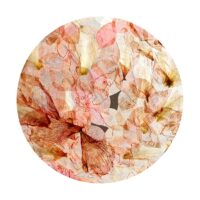Dornach. The Medical Section’s members’ evening on November 7 was attended by 100 people, with 170 more taking part online.
In keynote speeches, Section leaders Karin Michael and Marion Debus gave a spiritual-scientific assessment of the struggles facing anthroposophic medicine. According to Karin Michael, it is first and foremost about serving the patients, supporting them in realizing their ideal of the future and recognizing their light and needs. Technology and politics make this difficult.
Marion Debus’ lecture dealt with the moral boundaries between external guidelines and inner ideals in medicine. She emphasized the need to play a role in shaping culture in the spirit of Steiner, which is associated with sacrifice: at the end of the 1960s, Gerhard Kienle had already encountered a double headwind when founding the first anthroposophical community hospital in Germany, Witten/Herdecke, from the ranks of the anthroposophical society, whose members feared for anthroposophical medicine, and from the authorities, who confronted him with bureaucratic requirements.
Marion Debus also introduced the anthroposophical pediatrician Tido von Schoen-Angerer, an external advisor to the WHO TCIM units (Working Group on Traditional, Complementary, and Integrative Medicine). In this role, he is involved in formulating the new strategy for traditional, complementary, and integrative medicine for the years 2025 to 2034. This could improve the conditions for anthroposophic medicine in healthcare systems worldwide. She called for the potential restrictions on freedom in the healthcare system to be countered with engagement in civil society. Michaela Glöckler also used the work of the European Alliance Eliant to describe the threshold position of initiatives of applied anthroposophy: a balancing act between “the innermost esotericism and the greatest possible publicity.”
Connected online, Stefan Schmidt-Troschke from Gesundheit Aktiv encouraged people to get involved in shaping a humane healthcare system. This was followed by a discussion in small groups and later in a plenary session. It became clear that many are concerned about the abuse of power by supranational institutions. The section leaders emphasized the need to engage in the struggle for individualized, independent medicine in civil society in the existing conditions and to be aware of the spiritual source from which one draws.
The fact that the event was only offered in German was criticized online. As a result, an online event was offered in English for interested parties from Asia and North and South America.
Translation Charles Cross
Title image Chamomile, Photo: Sofia Lismont













